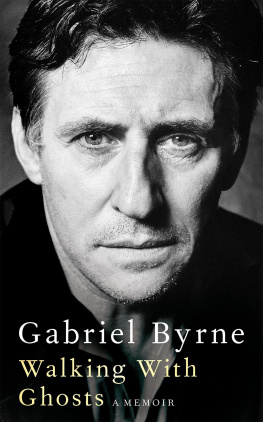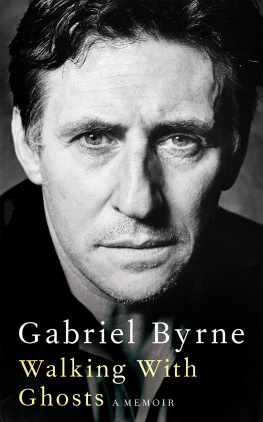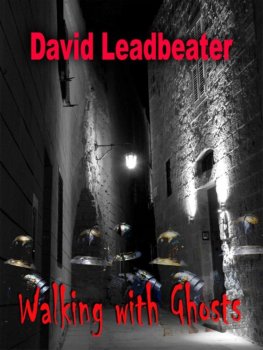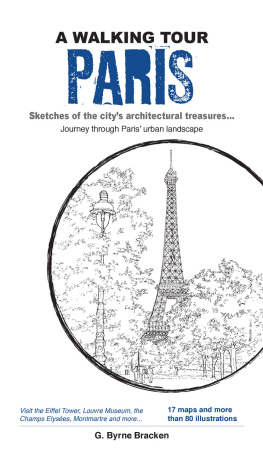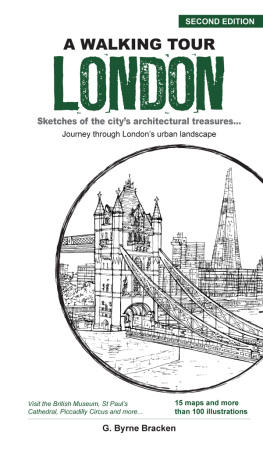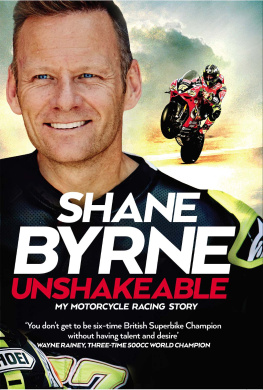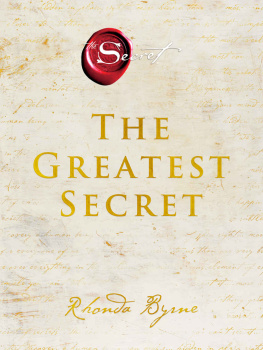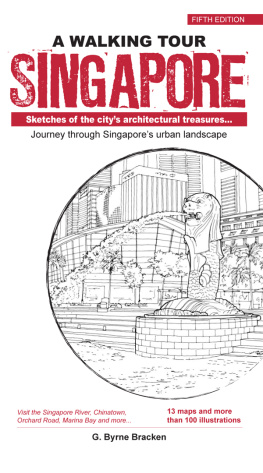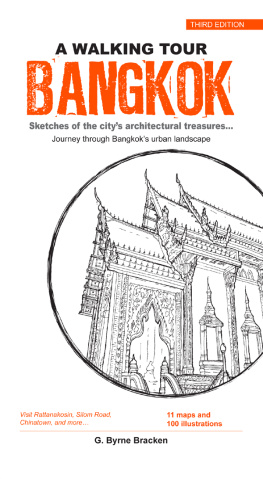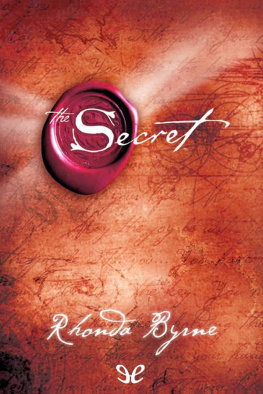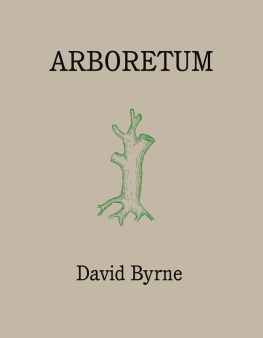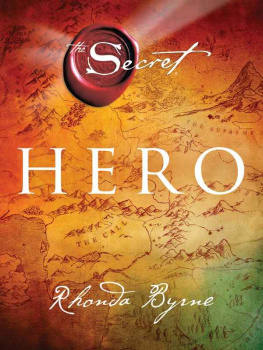Gabriel Byrne - Walking With Ghosts
Here you can read online Gabriel Byrne - Walking With Ghosts full text of the book (entire story) in english for free. Download pdf and epub, get meaning, cover and reviews about this ebook. publisher: Pan Macmillan UK, genre: Detective and thriller. Description of the work, (preface) as well as reviews are available. Best literature library LitArk.com created for fans of good reading and offers a wide selection of genres:
Romance novel
Science fiction
Adventure
Detective
Science
History
Home and family
Prose
Art
Politics
Computer
Non-fiction
Religion
Business
Children
Humor
Choose a favorite category and find really read worthwhile books. Enjoy immersion in the world of imagination, feel the emotions of the characters or learn something new for yourself, make an fascinating discovery.
- Book:Walking With Ghosts
- Author:
- Publisher:Pan Macmillan UK
- Genre:
- Rating:4 / 5
- Favourites:Add to favourites
- Your mark:
- 80
- 1
- 2
- 3
- 4
- 5
Walking With Ghosts: summary, description and annotation
We offer to read an annotation, description, summary or preface (depends on what the author of the book "Walking With Ghosts" wrote himself). If you haven't found the necessary information about the book — write in the comments, we will try to find it.
Walking With Ghosts — read online for free the complete book (whole text) full work
Below is the text of the book, divided by pages. System saving the place of the last page read, allows you to conveniently read the book "Walking With Ghosts" online for free, without having to search again every time where you left off. Put a bookmark, and you can go to the page where you finished reading at any time.
Font size:
Interval:
Bookmark:

WITH
GHOSTS


Contents
For Hannah, my love
Fear not for the future, weep not for the past.
Percy Bysshe Shelley (17921822)
HOW MANY TIMES have I returned in my dreams to this hill. It is always summer as I look out over the gold and green fields, ditches foaming with hawthorn and lilac, river glinting under the sun like a blade. When I was young, I found sanctuary here and the memory of it deep in my soul ever after has brought me comfort. Once I believed it would never change, but that was before I came to know that all things must. Its a car park now, a sightseers panorama.
Here, I imagined my life to come, read my comics, later forbidden paperbacks. Once, a book of one thousand jokes, which I tried to learn by heart so people would like me for making them laugh. Two cannibals are eating a clown. One says to the other: Does this taste funny to you?
I dreamed of first love. A dark-haired girl with pale skin. How I loved Mary Foley in her pink cardigan, smiling. For her I would ride my invisible horse to the doors of Wild West saloons, shoot at Nazi stormtroopers, and score the winning goal for Ireland in the final moment of extra time. Alas, she loved another. Elvis Presley.
I would come here in all seasons, when grass was stiff with frost or on days of such stillness you could hear the fwoofing wings of a pheasant startled from a bush.
Autumn, and the earth turned, evenings drew in, fires were lit in front rooms. The smell of earth in decay, smoke from burning leaves carried on the wind, and a kind of melancholy that made me lonely.
On winter evenings electric wires sang like ghosts in the laneways. The beams of an occasional car lit the bare-fingered trees as I ran to the farm to collect milk for my mother, who distrusted shop-bought.
The old farmer woman sat on a one-legged stool, milk foaming into the bucket between her legs, her head leaning against their ribs, cow piss running out into the yard, their flanks caked with dried shit like scabs, letting out bellows as they looked at you, sad-eyed.
Sometimes for a joke she would turn their teats and spray us as we ran for cover. Jews came too for their milk, carrying silver cans, speaking their own strange language.
Then, like a forgotten memory stirring, springtime arrived again, dark giving way to light. Windows opened, the first snowdrops and daffodils and coltsfoot appeared; evenings lengthened; all of nature stretching after its long sleep. Days that brought joy and hope.
Finally, the longed-for summer: the sky blue as the Virgin Marys mantle, long days of freedom from hated school.
I am thinking of the seasons of my own life, learning now in my winter days I must shed what I have held most dear.
Yet there is contentment, even joy, in a landscape of bare trees, when the light makes everything more stark and bittersweet.
Here I stand now, a man longing to see as a child again, when every smell and sound and sight was a marvel. Yet I will never know again the childhood thrill of finding a hawk feather snagged on a briar, or the taste of wild blackberries after rain.
This place birthed my love of simple things.
I have never loved concrete as I love a tree, or reeds by a river flamed by an evening sun, or the first stars of evening; the bleat of a lamb in a distant field or the small spitter of rain on a windowpane.
Sometimes in those days I felt that I might crack and break apart with joy, and to contain my wild feelings I ran and summersaulted until I was breathless and dizzy. I lay for hours beneath the upside-down sea of the sky, where the clouds became camels or the face of God.
Over there a boat rotted by the riverbank where long-beaked birds speared for food. I liked to stand and sing on the river stones, bare feet distorted by cold rushing water. When rain came, Id take shelter in the hoof-marked mud beneath the trees. I shat there like the animals, wiped myself with a dock leaf, covered it in case anyone might know it was mine.
Here is the ruin of a small cottage where Mrs. Doran lived alone. Her husband had been a soldier. One day he left in his green uniform on his motorbike and never came back again. There was still a photograph of him on the mantelpiece beside the one-eyed china cat.
Thats where Mrs. Prunty used to live in her great house. Only the chimneys showed above the woods where her family had resided since before the famine. We hardly ever saw her, except in the fields tending to her horses, moving among them with a bucket of feed, touching their faces as they whinnied and stomped and butted heads in delight. Or on Sundays in the back of the old Bentley, face covered by a mantilla, being driven to service in the Protestant church.
Once, we stole through the woods and peered in through the lace curtains at the furniture covered with sheets, buckets on the floor to catch the rain from a leaking roof, the Bechstein piano we had seen speeding above the hedgerows on Turleys truck, rotting in a corner.
Beyond is the chapel, its door locked now with a thick chain. When I was a child, it was always open, Gods house, for a quick prayer. Another place of escape and comfort, where I came for the answers to what ailed my boyhood self. A little chat with Himself. The recording of a bell rings now from its tower. Beyond was the factory where once the workers poured in and out of the gates to the sirens call. Men in boilersuits, women in nylon smocks and headscarves.
Its a block of expensive-looking apartments now.
Across the field was the dance hall, by day an unremarkable building of cement with peeling paint doors.
But by night, lit by Christmas lights around the door, it was a place of magic. From a ways off youd hear the music spilling out over the fields.
Crowds streaming out of the pubs, some walking or on bicycles; hard chaws in their fathers cars leaning out windows with cigarettes, like they were in a film, combing oiled hair into Elvis quiffs and whistling at the girls click-clacking by in short dresses.
On the stage the spangle-suited band, brass flashing, guitars twanging beneath revolving globes that scattered shards of light over the dancers.
Wallflowers looked out with shy, uncertain eyes.
How long had they spent in front of the mirror getting ready and here they sat unwanted, with thumping hearts, yet hopeful they might be chosen, having to look unconcerned when they were not.
I understood them, afraid of being rejected, as I was shoved toward them in a herd of Brut aftershave and Guinness.
There was a row of shops, I remember.
On the corner, the hardware shop where grumpy Tom, in canvas coat, sold everything from rat poison to Christmas candles, nothing a bother.
And the drapery where Betty worked. My mother bought her Castle Hosiery nylons and satin underthings there.
I liked to watch Betty in her nylon coat, beehive hair tied with a ribbon, pins in her mouth; moving around the shop in high heels. I could see the outline of her underwear and the little notches of her stockings. My first sins of impurity.
Next door was Mr. O. the chemist and part-time waltzer.
Open nine sharp, closed five on the dot. Fresh starched white jacket every day, three buttons on the shoulder, name written in red across the chest.
Hed give my mother medicine in a little white envelope, to help her sleep when shed go up for her lie-down in the afternoons with the curtains closed.
Font size:
Interval:
Bookmark:
Similar books «Walking With Ghosts»
Look at similar books to Walking With Ghosts. We have selected literature similar in name and meaning in the hope of providing readers with more options to find new, interesting, not yet read works.
Discussion, reviews of the book Walking With Ghosts and just readers' own opinions. Leave your comments, write what you think about the work, its meaning or the main characters. Specify what exactly you liked and what you didn't like, and why you think so.

